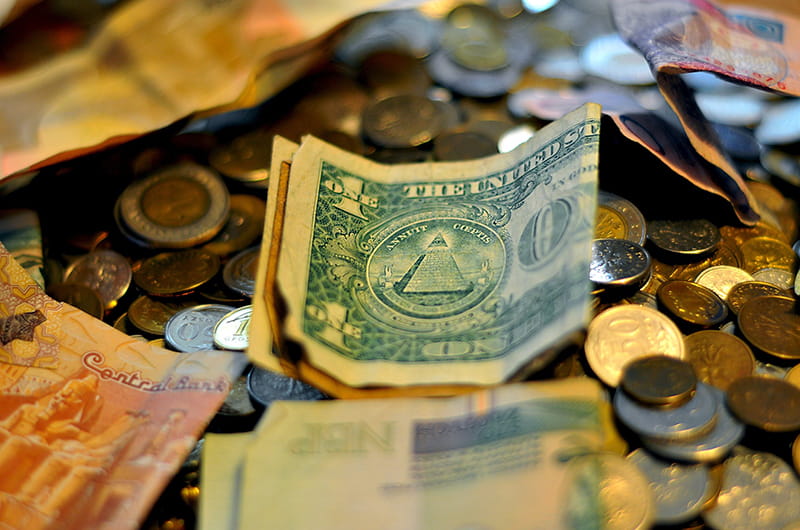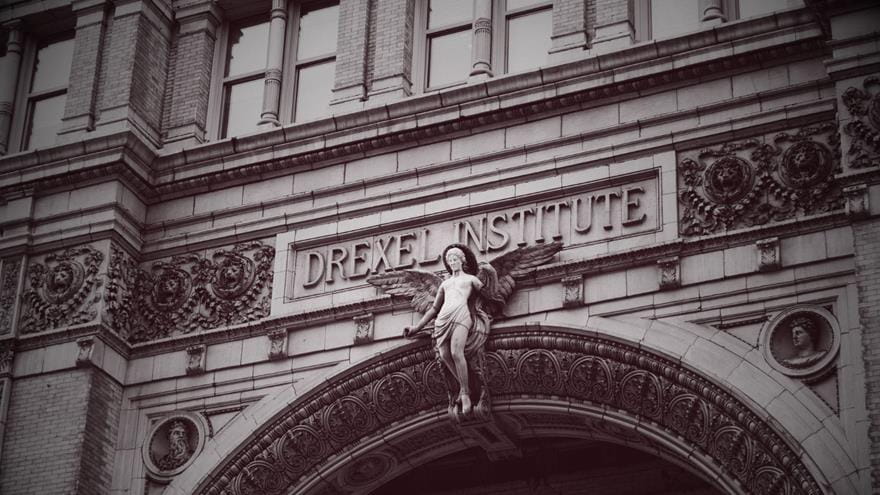The Value of a Drexel Degree

It’s the time of the year when graduating seniors begin sizing up the job market, knowing it will soon do the same to them. The good news is that new jobs have been created every year since 2012 and the economy is on the upswing.
Despite the recovery, though, students who have recently graduated still face unemployment and poor wages, according to the Economic Policy Institute, and jobs for new grads have actually dropped.
This is where having an education that gives one a little extra advantage in the workforce is so important.
“It’s very striking to me the extent to which Drexel does emphasize its value in economic terms to prospective students,” said Mark Freeman, vice provost of Institutional Research, Assessment and Effectiveness. “That appears to be very much within the zeitgeist of the time. There aren’t that many jobs for people with liberal arts-type degrees. The climate has changed in the last 10 years, so that even schools that demonstrate learning for its own sake now have to provide concrete outcomes.”
Drexel excels at concrete outcomes. According to a series of college rankings examining how institutions across the country equip their students for the world after graduation, Drexel students perform well in the workforce.
Searching for the value of a college degree was what led Payscale.com to put out a College Return on Investment Report. Payscale allows users to compare their salary with others in similar jobs and add their data to the pool. For several years, Payscale has been assessing its data on mid-career earnings against publically available data on the cost and debt of that education. The College Return on Investment Report takes into account the total cost of education, minus financial aid, relative to earnings and calculates an annual value on the graduate’s investment over a 30-year timeframe.
There are flaws in this ranking — all the data is self-reported, so low salaries may be under-represented. In addition, the salaries that graduates who come from wealthy backgrounds achieve may not be entirely due to their chosen institution. But it does begin to paint a picture of what students can expect after college.
The Brookings Institution took the Payscale data and dug even deeper. The research organization added institutional data on what type of degrees people graduate with and produced a comprehensive ranking that looked at what they called “value added.” This ranking took into account the characteristics of various institutions such as types of degrees, completion rates and faculty salaries and compared them to institutions that get similar students and that have the same kind of financial background.
“Brookings took the Payscale data and added this twist,” Freeman said. “What is the value added to this institution; given where the students start, where do they end up? Drexel looks really fantastic on that.”
Indeed, Brookings calculated that students from Drexel graduate with roughly $20,000 more annually than what would be expected for a student entering a similar institution.
The U.S. Department of Education has also been contemplating the value of college degrees, which prompted it to release its College Scorecard. The College Scorecard marries financial aid records from students with the W2 database from the Internal Revenue Service, looking at where a student was from and how much they borrowed against their actual earnings. The Economist took that data and did a similar type of analysis to Brookings.
Once again, Drexel out-performed what would be expected given the entering characteristics of its students. In this case, a Drexel graduate was projected to earn around $3,000 more than those from similar institutions.
In looking at the variation between the two numbers, one has to take into account how the data was collected. Just as Payscale is self-reported, the Department of Education is only using information from people who requested financial aid. There’s no information for non-financial aid participants. But it’s worth noting that in both of those reports, Drexel is ahead of its comparative institutions in terms of economics and salary.
Drexel’s co-op program, which employs 98 percent of eligible undergraduates in up to three different co-ops in their field of study before they graduate, has a huge role in preparing students for life after college. Many students end up receiving full-time job offers from one of their co-op employers after graduation. For those serious about preparing for a career, Drexel’s co-op pathway is perfect.
“Given the population that we are serving, this is an excellent mission for Drexel,” Freeman said. “The students who are the most successful are the ones who come in knowing what they want. They know how to get it. They get it. And then they go. We over-perform on transforming research into practical inventions. Students pick up on that.”
It is not surprising they pick up on it. Inventions that have come out of Drexel include the barcode; the use of ultrasound in biomedical applications; reconfigurable antennas for wi-fi and other communications applications; and non-invasive, radiation-free tumor detection for breast cancer. Other promising innovations in development involve conductive materials that can be used in electronics and energy storage applications, synthetic grafts for ligament repair, drugs that inhibit cancer spreading throughout the body, and a gaming platform specifically designed to improve the coordination and fitness of children and adults whose movements have been impaired by conditions like cerebral palsy and stroke.
These new discoveries are emblematic of Drexel’s focus on the future. According to Freeman, it’s that focus that truly prepares its graduates for their lives outside of academia.
“There is this value of doing new things, of taking new things in a new direction and not just doing things we’ve always done,” Freeman said. “The new is just as valued for its own sake. Which is almost the opposite at other institutions. Things are organized here to accelerate change.”
These studies show that the value of a Drexel degree can be measured in dollars and cents. But it’s clear that Drexel’s appreciation of new ways of thinking and dedication to preparing its students for the workforce is priceless.
In This Article
Drexel News is produced by
University Marketing and Communications.

